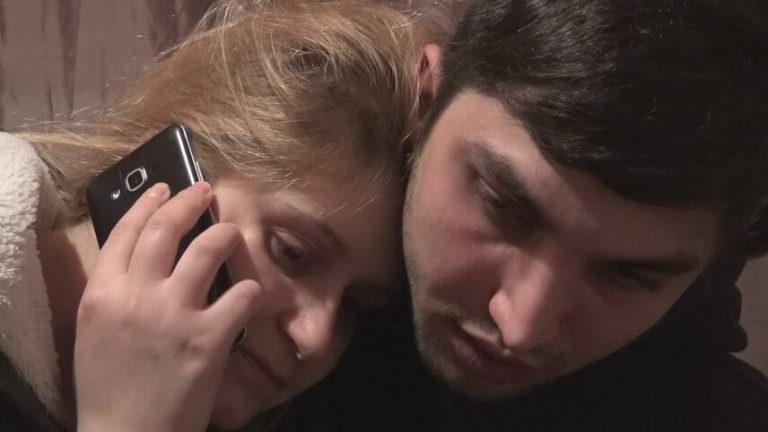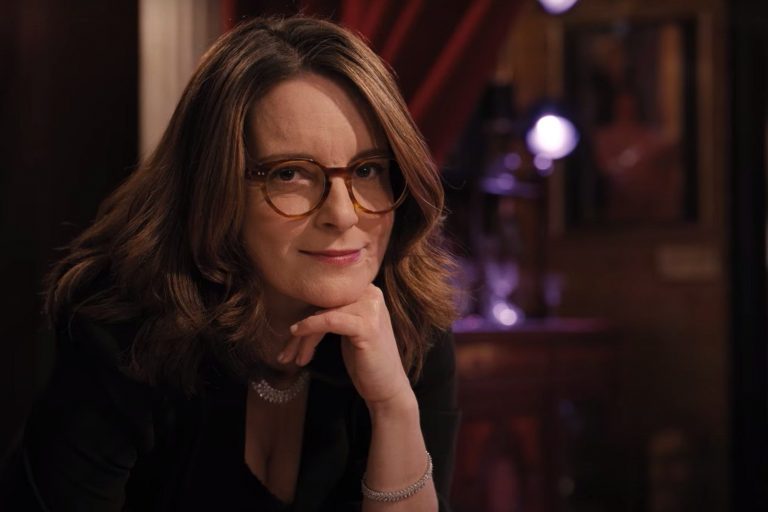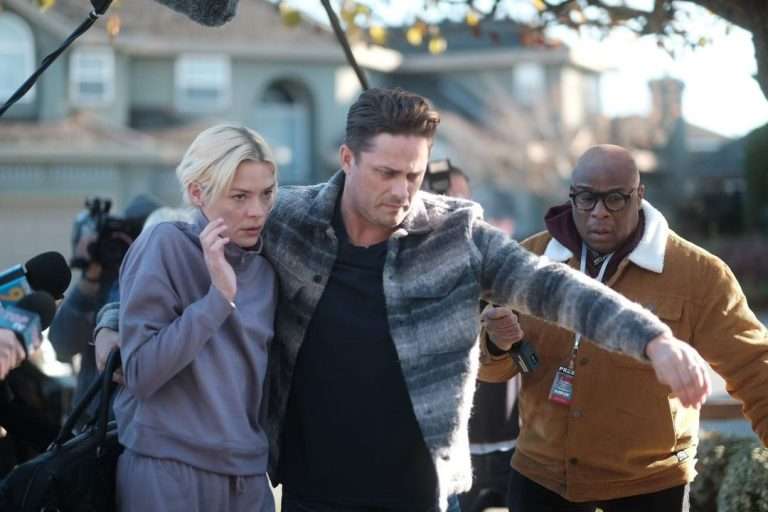Yoji Yamada is one of the prolific Japanese filmmakers. He has started his film-making journey in the 1960s, and has made more than 90 films in the span of six decades. Yamada was best known for his Tora-san movies – a kind-hearted traveling peddler, who captivated generation of Japanese audiences. He directed 48 Tora-san movies between 1969 and 1995. Yamada was also known for his serene samurai trilogy – Twilight Samurai (2002), The Hidden Blade (2004) and Love and Honor (2006) – which captured the changing values in Japanese society during the end of the samurai era in the mid-19th century. Of course, there are other undiscovered gems in the director’s oeuvre like The Village (1975), The Yellow Handkerchief (1977), and A Distant Cry From Spring (1980). One such important, lesser-known Yamada film is Kabei: Our Mother (2008), a somber domestic drama, set in the backdrop of World War II.
Yamada’s Kabei, on one hand provides a biting commentary on Japanese wartime policies. On the other hand, the film functions as a tear-jerking ode to the self-sacrificing mothers of wartime Japan. And yes, the heightened sense of melodrama teeters around like a carriage traveling speedily around the edge of a cliff, threatening to topple everything. But the deft direction of Yamada and unique, empathetic performance from Sayuri Yoshinaga keeps our emotions grounded.
Kabei: Our Mother is based on the childhood memoirs of Teruyo Nogami. She was Akira Kurosawa’s longtime script supervisor and production manager. The story is set in 1940, Tokyo, where the bespectacled, thoughtful professor Shigeru Nogami (Mitsugoro Bando) leads a peaceful life with his self-assured wife Kayo (Sayuri Yoshinaga) and two daughters – 12 year old Hatsuko and 9 year old Teruyo.
Shigeru has bestowed the nickname Kabei for the matriarch & Tobei for himself. Tobei is arrested one night on charges of subversion (‘thought crimes’). It is the era in which sycophantic Japanese citizens fared well than the truthful ones. Average people are caught up in the imperial government’s jingoistic and flag-waving sensibilities. Kabei’s position becomes more distressful as her conservative police-chief father disowns her.
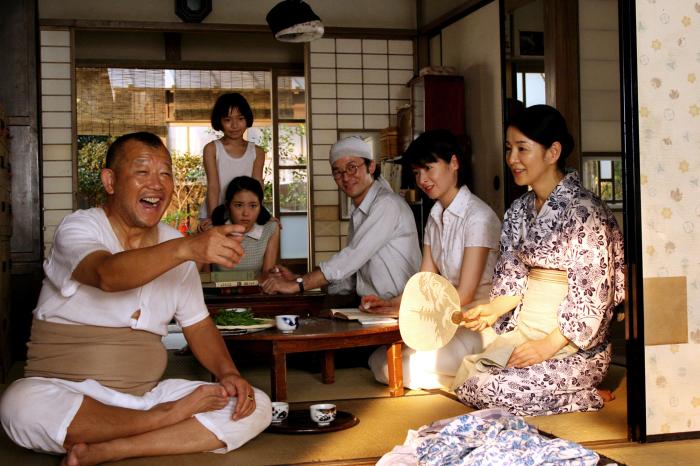
Nevertheless, Kabei’s neighbors are much more helpful and never seem to care much about Tobei’s political views. The most helpful person to the Nogami family is one of the clumsy, bumbling ex-student of the professor named Yamazaki (Tadanobu Asano). The narrative shuffles between Kabei’s remarkable mindset in enduring the hardships, while also providing moral support for her jailed, ailing husband. A handful of brief episodic sequences also showcase the worsening socioeconomic circumstances in Japan.
Related to Kabei: Our Mother: Grave of The Fireflies [1988]: A Love Letter to Brotherhood
In order to evade the burden of two-hour plus running time, director Yamada carefully uses flashes of humor and poignancy to keep us thoroughly engaged. Like all the best Japanese wartime movies, Kabei stays away from reflecting solely on the devastating caused by the Allied forces. Both Yamada and Teruyo view the brain-washed militarist individuals as the instigators for these ruins. There are plenty of scenes and minor characters that portrays how a false sense of nationalism could destroy its citizens’ lives forever.
Kabei, despite her reluctance is coerced to participate in the hysteric nationalism and in the worshiping of the emperor. Some may think that the script isn’t profoundly critical of Japan’s wartime methods. But I felt that it is unflinchingly honest, considering the limited perspective of a working-class mother. Yamada’s Kabei in many ways reminds us of Keisuke Kinoshita’s gorgeously-shot melodramas like Army (1944), Boyhood (1951), and Twenty-Four Eyes (1954). Yamada’s rich explorations of familial themes gives him a fine vantage point approach the darkest past in their country’s history.
Yamada’s directorial touch – which isn’t authorial like that of Kurosawa or Mizoguchi – is very restrained and immerses us into the melancholic mood. Despite the melodramatic notes, the director understands the power of unspoken words so as to keep the emotions muted. Particularly, during Yama’s farewell scene – a little too much of emotions would have set-off a bad tone.
Writer/director Yoji Yamada was born in the year 1931. He was brought up in China since his father worked as an engineer in South Manchuria Railways. Yamada moved back to Japan by the end of the war. In his interviews, the one thing he repeatedly recalls about the post-war days is being hungry. In the mid-1950s, Yamada started working at Shochiku Studios, under Yoshitaro Nomura, who is best known for his crime dramas like Stake Out (1958) and The Demon (1978). Apart from Kabei, Yamada dealt with war-time themes in another restrained drama, titled The Little House (2014). Even with Kabei, Yamada experience allows him to perfectly strike the balance in the narrative, which is riddled with hope as well as despair.
The director’s in-door, ground-level shots (cinematographer Mutsuo Naganuma) and other static framing evokes the style of Japanese master Yasujiro Ozu and Naruse. Yamada also adds layers of thick textures (& lightning) to stay true to the story’s brief, melodramatic tendencies (the final heart-breaking scenes with snowfall were framed in a magnificent manner). In spite of all these balanced aesthetics and restrained emotions, “Kabei” could have easily become a pity-party, if not for Yoshinaga’s central performance as the paragon of motherhood. She transcends the usual ‘left-behind’ type of role into a well-rounded character. Two of my favorite scenes that illuminate Yoshinaga’s range of emotions were: the farewell scene with Yama; and when Kabei explains to crying Hatsu-bei on why she isn’t bothered by the ‘ill-mannered uncle’.
“Kabei: Our Mother” (133 minutes) is a simple, bittersweet war story, benefited by excellent performances and smooth direction. It is tad sentimental, but never embraces over-the-top emotions and actually allows the tragic history to speak for itself.

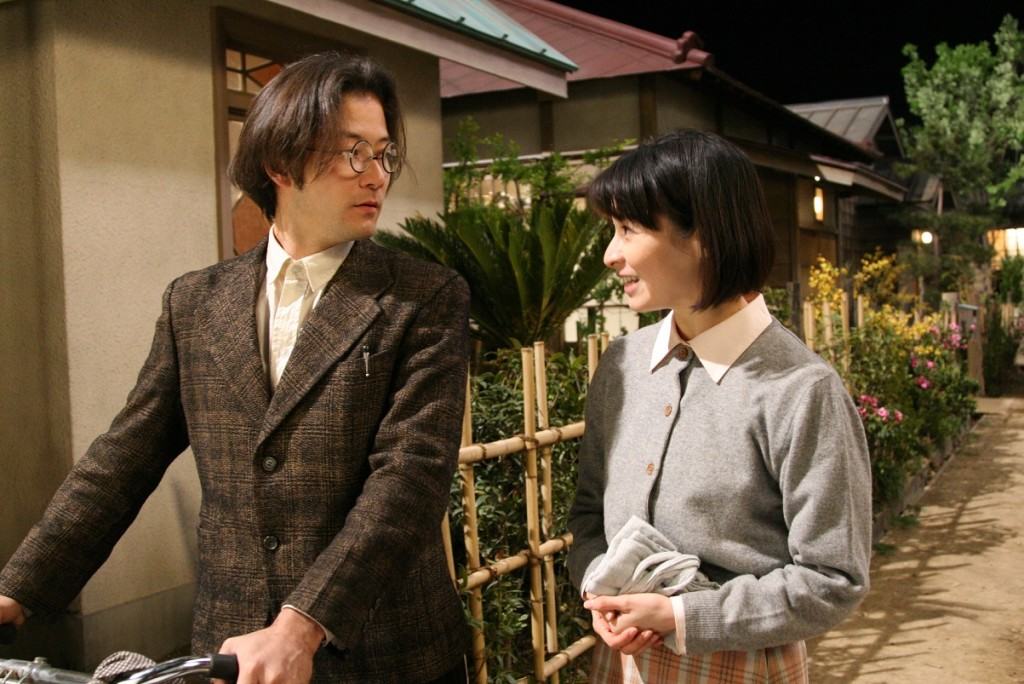


![It Is In Us All [2022] ‘SXSW’ Review – A Beautifully Shot Assiduous Thriller](https://79468c92.delivery.rocketcdn.me/wp-content/uploads/2022/03/It-Is-In-Us-All-2022-768x432.jpg)
![The Parallax View [1974] Review – Deceptions Hidden in Plain Sight](https://79468c92.delivery.rocketcdn.me/wp-content/uploads/2020/01/The-Parallax-View-1974-768x432.jpg)
